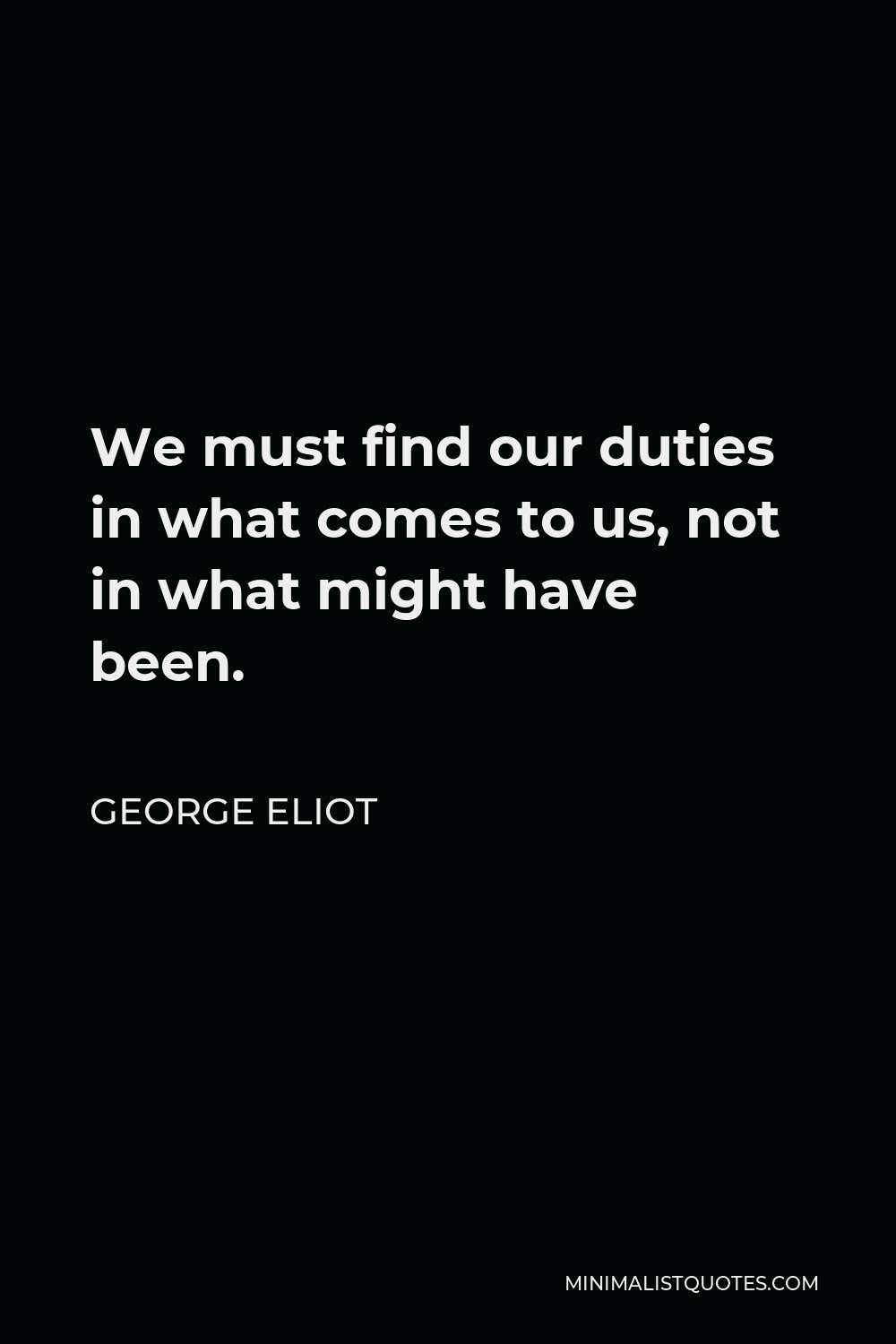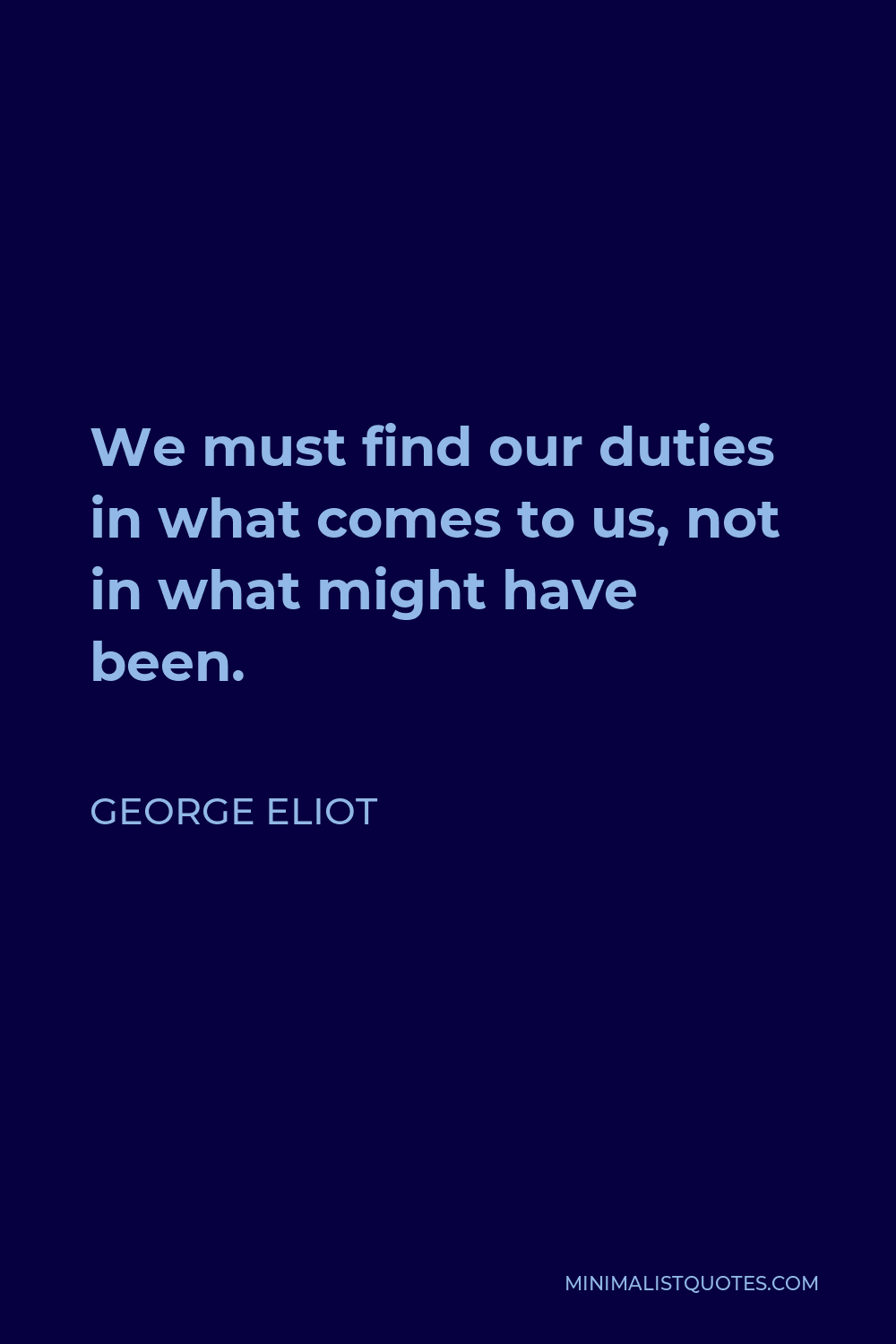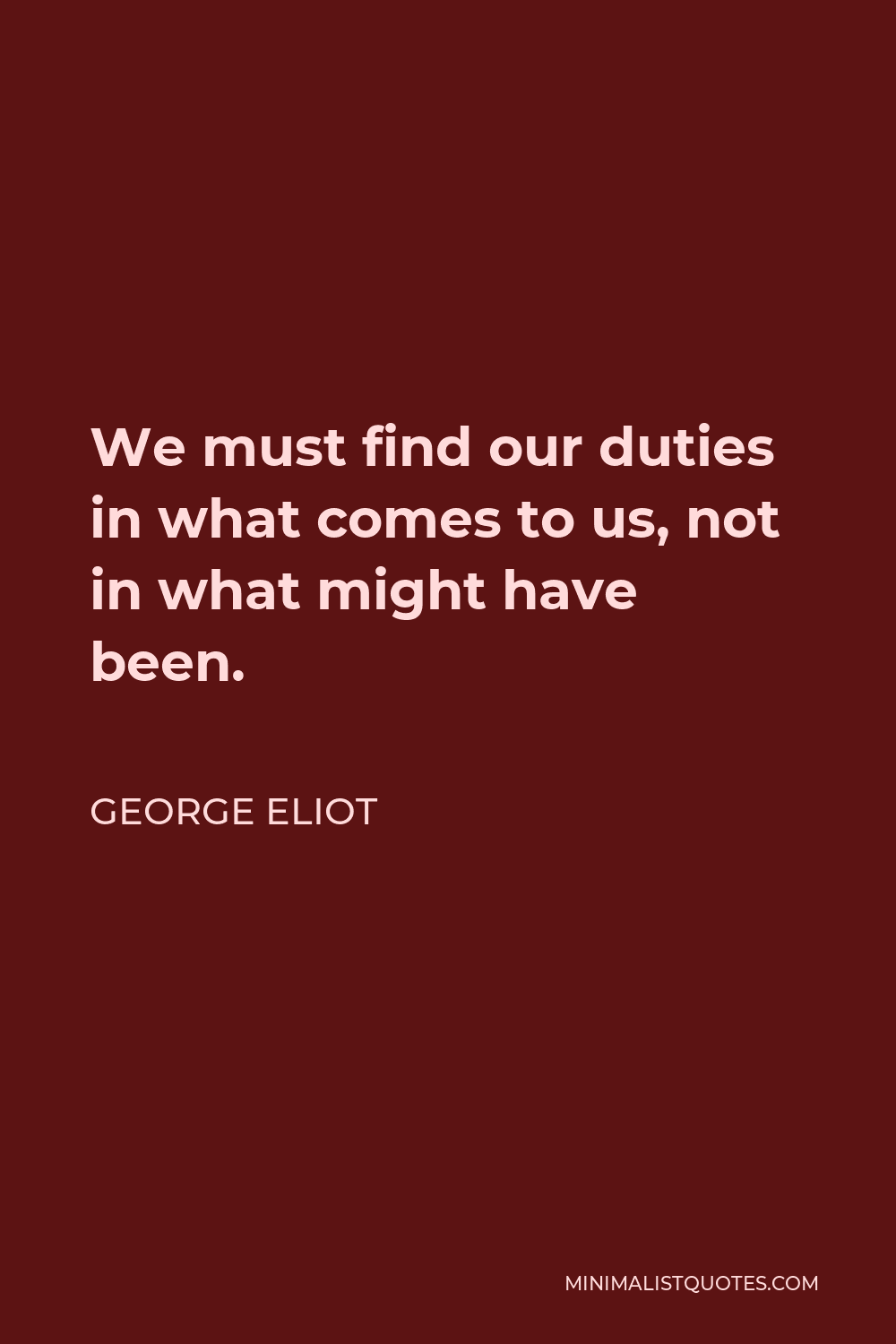We are contented with our day when we have been able to bear our grief in silence, and act as if we were not suffering.
GEORGE ELIOTWe must find our duties in what comes to us, not in what might have been.
More George Eliot Quotes
-





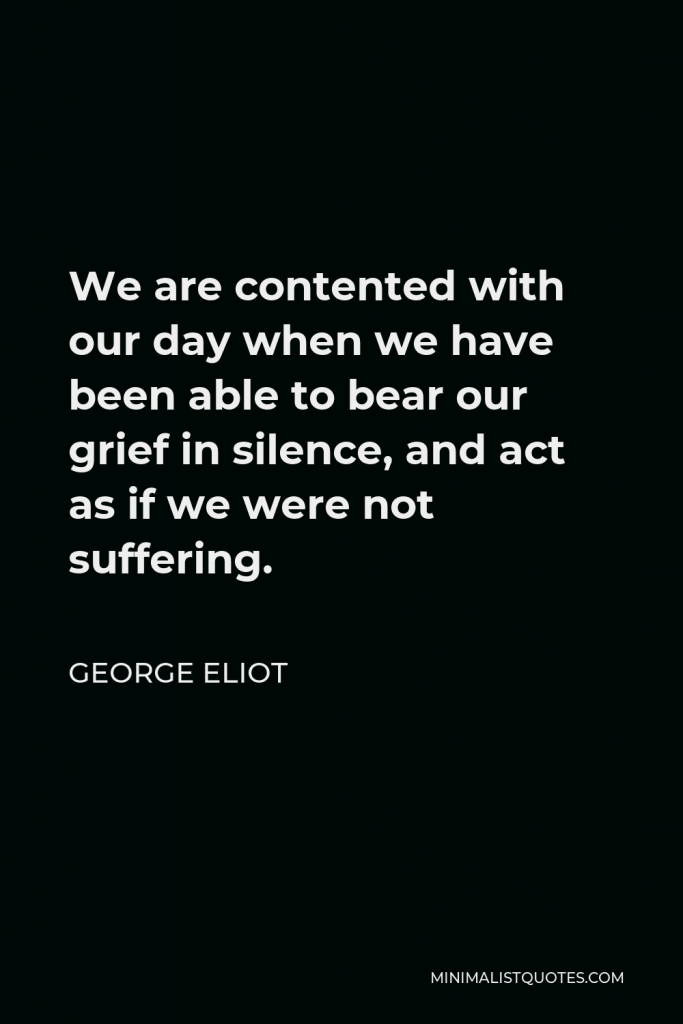

-





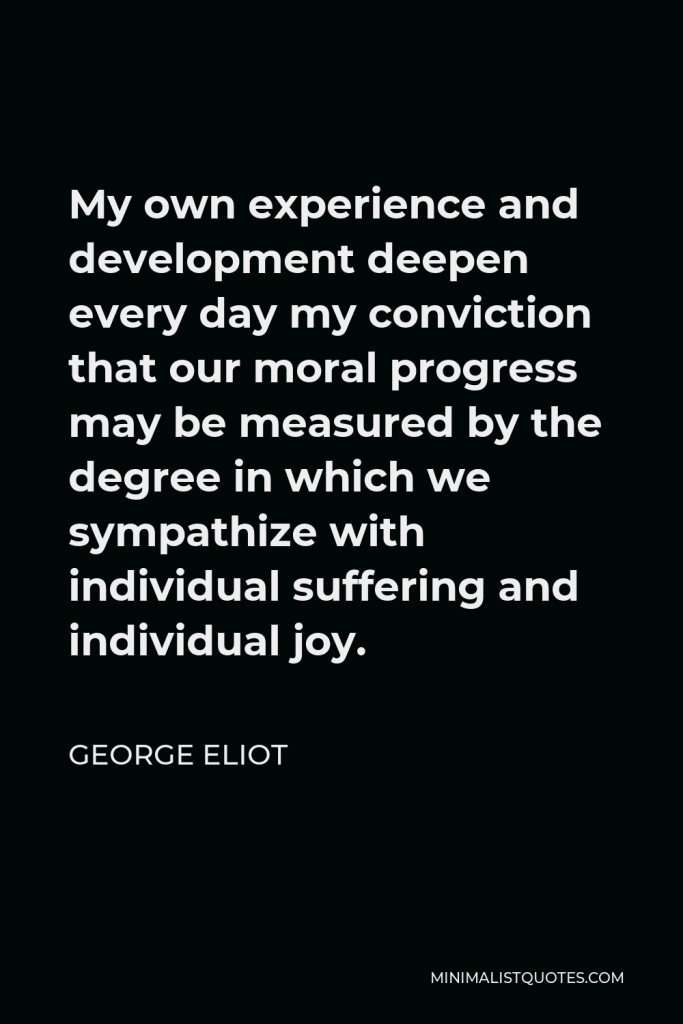

My own experience and development deepen every day my conviction that our moral progress may be measured by the degree in which we sympathize with individual suffering and individual joy.
GEORGE ELIOT -





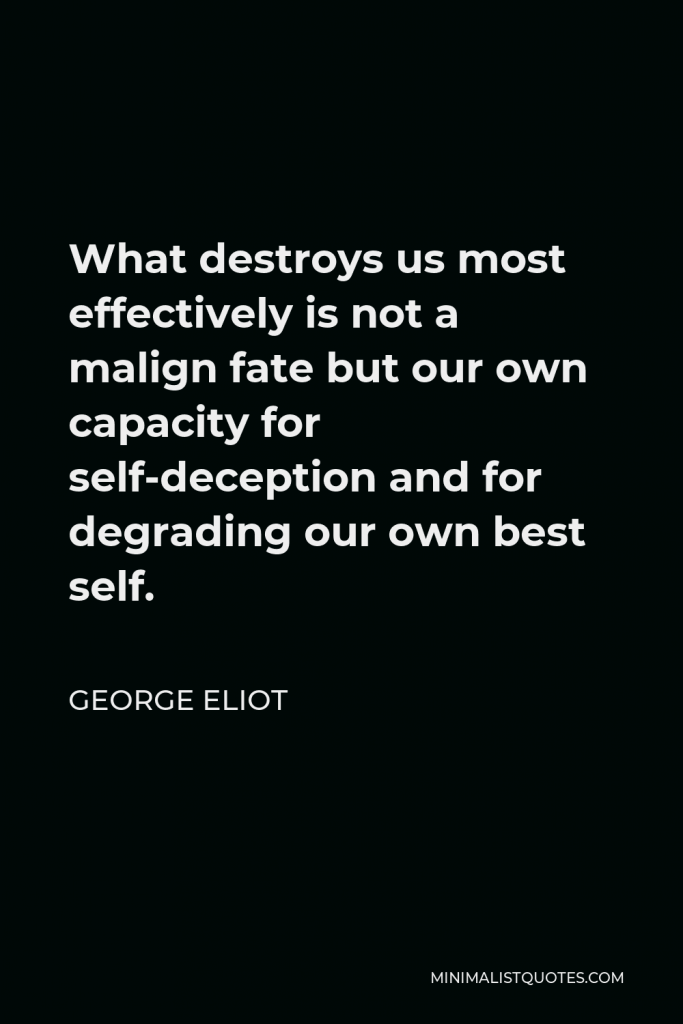

What destroys us most effectively is not a malign fate but our own capacity for self-deception and for degrading our own best self.
GEORGE ELIOT -







Souls live on in perpetual echoes.
GEORGE ELIOT -







What are a handful of reasonable men against a crowd with stones in their hands?
GEORGE ELIOT -





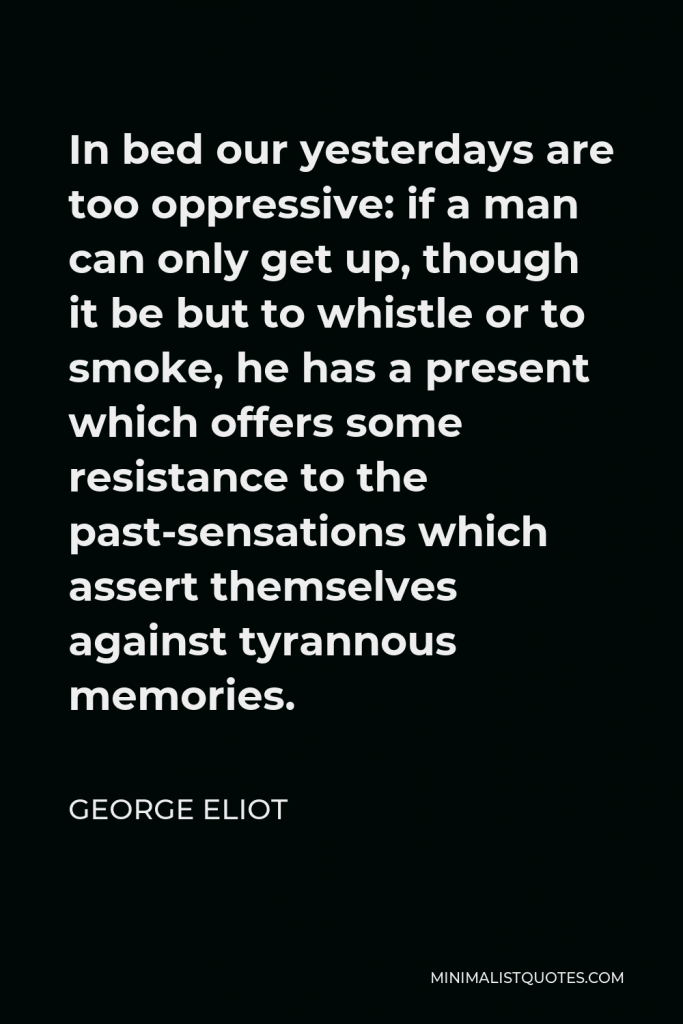

In bed our yesterdays are too oppressive: if a man can only get up, though it be but to whistle or to smoke, he has a present which offers some resistance to the past-sensations which assert themselves against tyrannous memories.
GEORGE ELIOT -





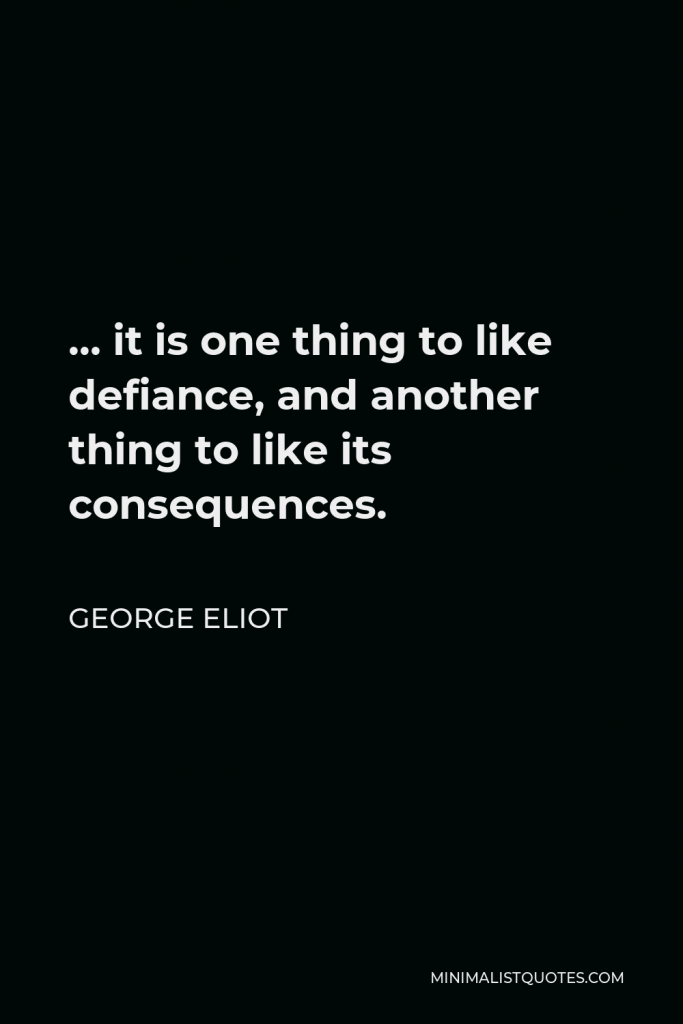

… it is one thing to like defiance, and another thing to like its consequences.
GEORGE ELIOT -





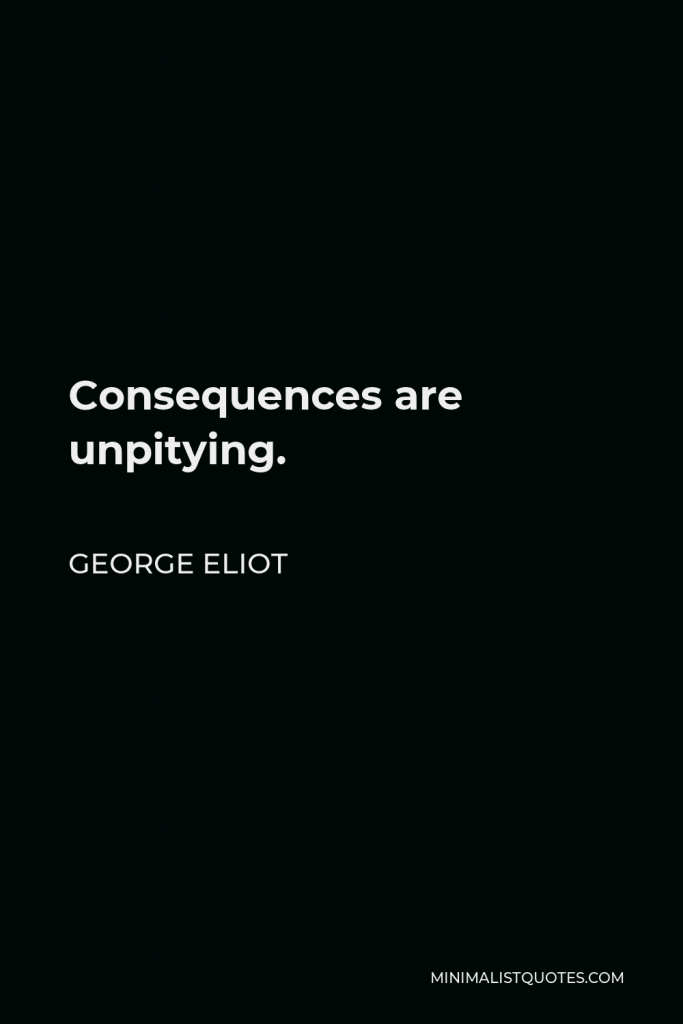

Consequences are unpitying.
GEORGE ELIOT -






To have suffered much is like knowing many languages. Thou hast learned to understand all.
GEORGE ELIOT -





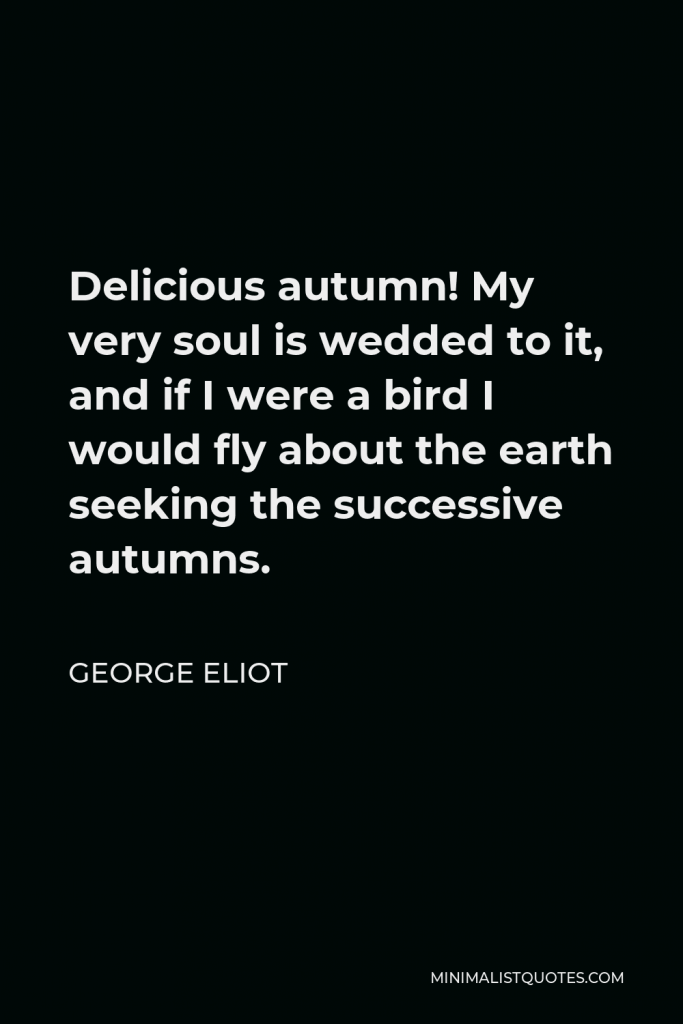

Delicious autumn! My very soul is wedded to it, and if I were a bird I would fly about the earth seeking the successive autumns.
GEORGE ELIOT -





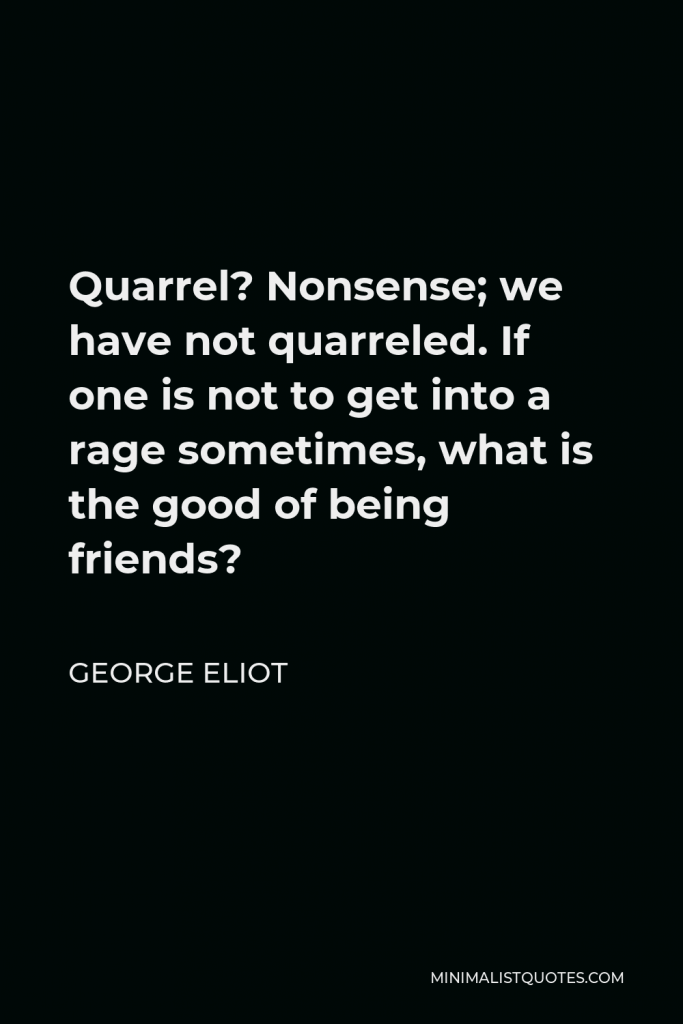

Quarrel? Nonsense; we have not quarreled. If one is not to get into a rage sometimes, what is the good of being friends?
GEORGE ELIOT -







Those who trust us educate us.
GEORGE ELIOT -







And, of course men know best about everything, except what women know better.
GEORGE ELIOT -





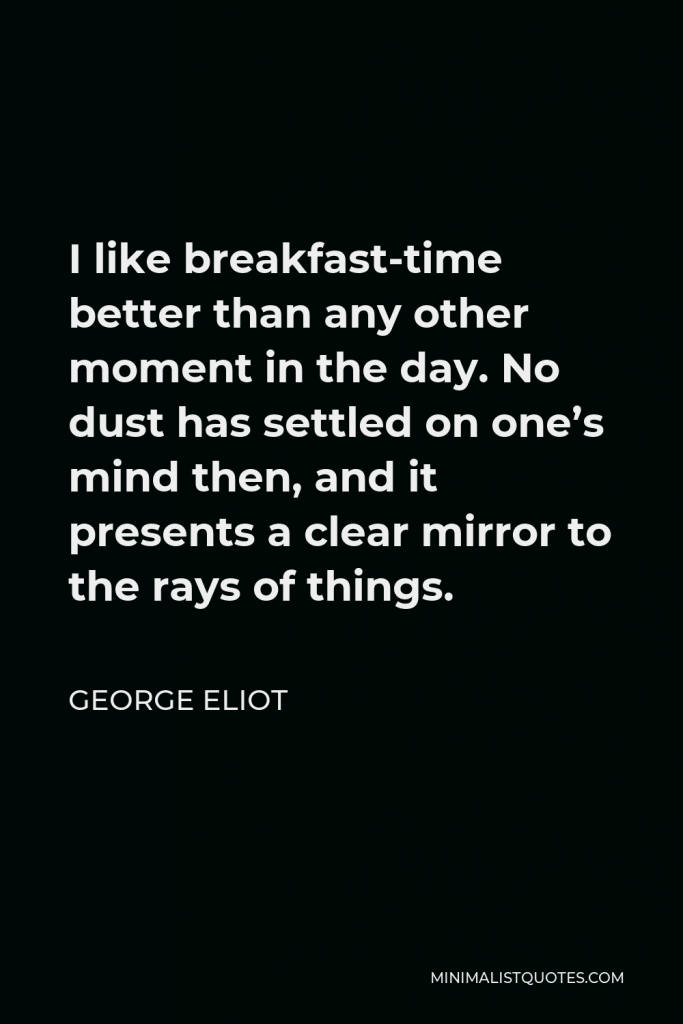

I like breakfast-time better than any other moment in the day. No dust has settled on one’s mind then, and it presents a clear mirror to the rays of things.
GEORGE ELIOT -





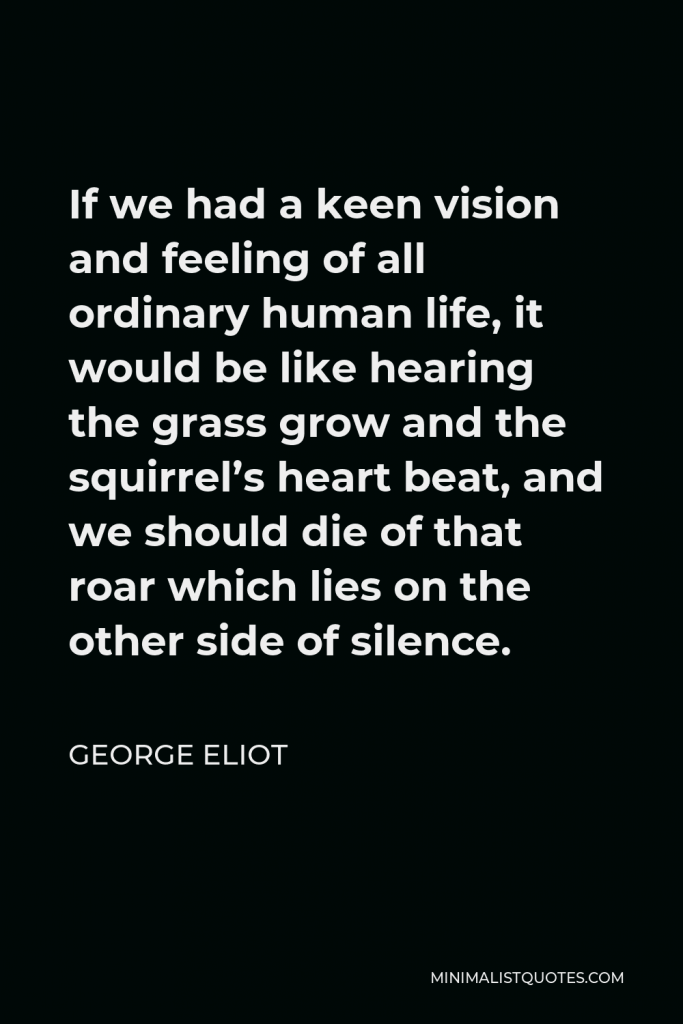

If we had a keen vision and feeling of all ordinary human life, it would be like hearing the grass grow and the squirrel’s heart beat, and we should die of that roar which lies on the other side of silence.
GEORGE ELIOT -





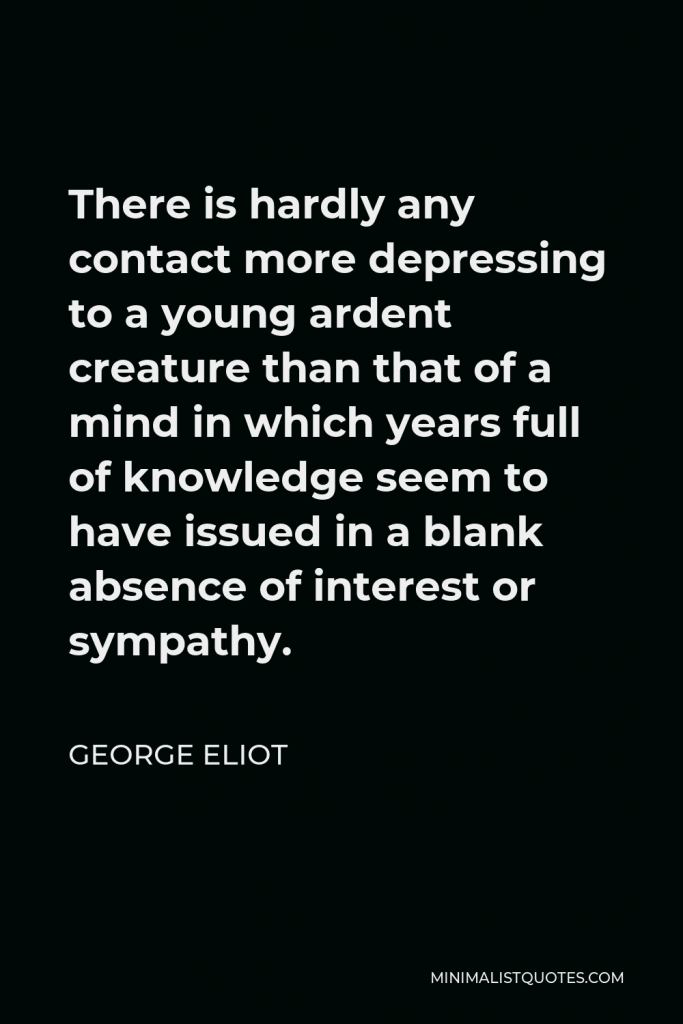

There is hardly any contact more depressing to a young ardent creature than that of a mind in which years full of knowledge seem to have issued in a blank absence of interest or sympathy.
GEORGE ELIOT
